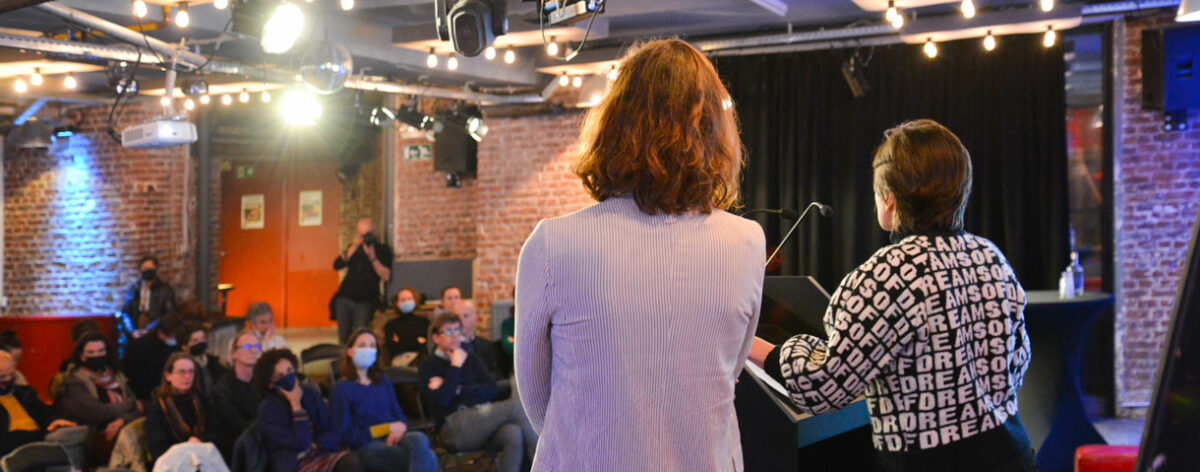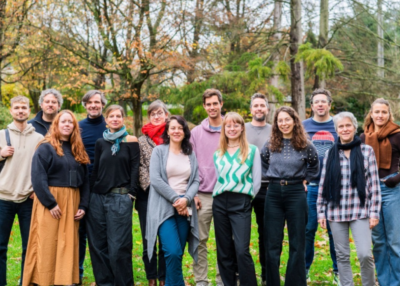
Study: the cultural and creative sector in Brussels
The cultural and creative sector is among the fastest growing globally, at least in pre-coronation times. Brussels is no exception to the rule. In order to map out and support this trend, hub.brussels is combining its expertise with the VUB in a study. This study focuses on the economic impact of this sector on the Brussels economy.
The impact study, conducted in collaboration with Dr. Marlen Komorowski of the SMIT research center (Studies on Media, Innovation and Technology) at the VUB, paints a picture of the Brussels cultural and creative sector just before the profound shock caused by COVID-19.
The study analyzes, among other things:
- Audiovisual sector
- Software and video games
- Music, performing and visual arts
- Books and press
- Advertising and marketing
- Design and mode
- Culture, art and heritage
- Events
- Architecture
- Photography
Dr. Marlen Komorowski’s initial observations: these sectors and subsectors experienced above-average growth until the start of the crisis, with an average annual growth rate of 2.4% in the 2017-2018 period. The Brussels economy grew by 1.2% during this period.
The cultural and creative sectors make an essential contribution to the Brussels economy, with a net added value of €3,2133 billion in 2018 (or 3.8% of the Brussels economy).
Basis for support and policy recommendations
The analysis offers a solid basis for detailed mapping of the impact of the corona crisis. It also serves as a tool to identify appropriate support measures and policy initiatives.
It is expected that the negative trend will soon reverse, after some challenging years. With positive effects as a result, such as the creation of employment and more cultural diversity & inclusion. In addition, the sector is indispensable for the international image of Brussels as a creative capital. The pre-condition for consolidating and strengthening: to develop an effective strategy to support the Brussels cultural and creative sector – at the regional, municipal and federal levels.
Barbara Trachte, State Secretary for Economic Transition, provides text and explanation:
I’m delighted to note that the recommendations from this study have already been largely incorporated into the Brussels regional strategy for the cultural and creative sector. I’m thinking, for example, of the financing of the call for projects for Crea.brussels or the support via Finance&invest.brussels which gives priority to initiatives from this sector. This is also the case for the new platform for the cultural and creative sector, a forum for consultation and the exchange of information. One of the goals of this platform is to increase the visibility of the sector. Support and training are also central to the strategy. This strategy should further emphasize the economic importance of this sector, essential to the allure of Brussels.
Isabelle Grippa, CEO of hub.brussels, adds:
We are elated that this study confirms our conviction: that we should finally consider cultural and creative entrepreneurship as an essential economic sector. That deserves priority support.
Annual update of the figures
This study is based on data from the BELFIRST platform. These figures are based on an analysis method developed within the framework of this study (with a selection of NACE codes). Finally, we would like to point out that these figures date from before the corona crisis, and therefore do not reflect the current situation.
Our data analysts update these figures annually, when the companies report their results to the National Bank. The next update is scheduled for June/July via analytics.brussels, the platform for the visualization and analysis of business data in the Brussels-Capital Region. Till then!
More news

After Audi: Brussels foreign trade in the first half of 2025
Posted on 28/01/2026
